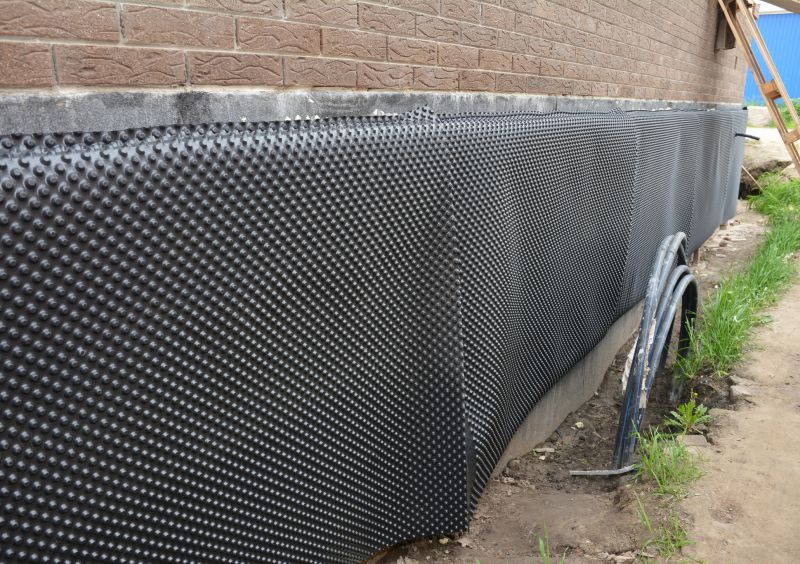Top Waterproofing Products for Effective Leak Prevention
Explore the leading waterproofing solutions designed to protect your property from water damage and ensure lasting durability.
 Waterproofing products are essential solutions for protecting structures, foundations, roofs, and various surfaces from water intrusion and damage. These products come in many forms, including coatings, membranes, sealants, and barriers, each designed to address specific needs and applications. Proper selection and application of waterproofing materials can help prevent leaks, mold growth, and structural deterioration, ultimately extending the lifespan of buildings and surfaces.
Waterproofing products are essential solutions for protecting structures, foundations, roofs, and various surfaces from water intrusion and damage. These products come in many forms, including coatings, membranes, sealants, and barriers, each designed to address specific needs and applications. Proper selection and application of waterproofing materials can help prevent leaks, mold growth, and structural deterioration, ultimately extending the lifespan of buildings and surfaces.
Top Overall Option
Liquid Waterproofing Membrane
A versatile liquid membrane offers seamless, flexible coverage suitable for various surfaces and shapes. It is easy to apply with brushes, rollers, or spray equipment, making it a popular choice for both DIY projects and professional applications. When properly applied, it forms a durable, waterproof barrier that adapts to surface movements and prevents water penetration effectively.
Types of Products For Waterproofings
Liquid Waterproofing Membranes
Fluid coatings that create seamless, flexible barriers for roofs, basements, and other surfaces.
Sheet Membranes
Pre-formed sheets made of rubber, bitumen, or plastic that provide durable waterproof barriers.
Bituminous Coatings
Asphalt-based coatings ideal for foundation and roof waterproofing with strong adhesion.
Polyurethane Sealants
Flexible sealants used to fill cracks and joints, preventing water infiltration.
Cementitious Waterproof Coatings
Waterproof cement-based coatings suitable for below-grade applications and concrete surfaces.
Acrylic Waterproof Coatings
Water-resistant acrylic paints that form protective layers on exterior surfaces.
Rubberized Coatings
Elastic coatings that accommodate surface movement and provide waterproof protection.
Crystalline Waterproofing
Chemical treatments that penetrate concrete to block water passage and reinforce the structure.
Bitumen Sheets
Self-adhesive or torch-applied sheets suitable for roofing and foundation waterproofing.
Hydrophobic Sealants
Sealants that repel water and are used for sealing joints and cracks.
Spray-On Waterproofing
Sprayable coatings that provide quick, uniform coverage over large areas.
Polymer Modified Bitumen
Enhanced bitumen formulations offering increased flexibility and durability.
Waterproofing Paints
Coatings that add a water-resistant layer to exterior walls and surfaces.
Foam Sealants
Expanding foam products used to fill gaps and prevent water ingress.
Sealant Tapes
Flexible tapes designed for sealing joints and seams in waterproofing applications.
Popular Choices
Widely used for their seamless application and versatility across various surfaces.
Favored for large-scale projects requiring durable, pre-fabricated barriers.
Commonly selected for foundation and roof waterproofing due to their proven adhesion.
Popular for sealing cracks and joints in concrete and masonry structures.
Chosen for below-grade waterproofing in basements and tunnels.
Often used for exterior walls to provide a protective, water-resistant layer.
Valued for their elasticity and ability to accommodate structural movement.
Selected for enhancing concrete durability and water resistance from within.
Preferred for roofing applications requiring a robust waterproof barrier.
Popular for sealing joints and preventing water seepage in various surfaces.
Chosen for its quick application over large or irregular surfaces.
Used for its enhanced flexibility and longevity in waterproofing layers.
Commonly applied on exterior walls for additional water resistance.
Effective for sealing gaps and cracks in construction joints.
Valued for quick, effective sealing of seams and joints.
In residential and commercial settings, waterproofing is often applied to basements, crawl spaces, roofs, balconies, and bathrooms. Choosing the right product depends on factors such as the type of surface, exposure conditions, and the desired level of protection. For example, liquid-applied membranes are popular for their seamless coverage and adaptability to complex shapes, while sheet membranes provide a durable, pre-formed barrier for larger areas.
Application techniques vary among products, with some requiring specialized tools or professional installation to ensure optimal performance. It's important to carefully read manufacturer instructions and consider the climate and environmental conditions of the location. In Terre Haute, IN, where weather fluctuations can impact building materials, selecting appropriate waterproofing solutions is especially critical to withstand seasonal changes.
Overall, investing in quality waterproofing products can help maintain the integrity of structures, prevent water-related damages, and improve safety and comfort. Regular maintenance and timely repairs using suitable waterproofing materials are recommended to preserve the effectiveness of these protective barriers over time.
Key Buying Considerations
- Surface compatibility: Ensure the product is suitable for the material you plan to waterproof.
- Application method: Consider whether the product requires professional installation or if it is suitable for DIY use.
- Weather conditions: Choose products designed to withstand the environmental conditions of Terre Haute, IN.
- Flexibility: Select coatings or membranes that can accommodate surface movements without cracking.
- Durability: Look for products with proven longevity and resistance to wear and tear.
- Ease of application: Consider whether the product can be applied using brushes, rollers, spray equipment, or pre-formed sheets.
- Coverage area: Check the coverage rate to estimate the amount needed for your project.
- Curing time: Be aware of drying and curing times to plan your project timeline effectively.
- Compatibility with existing materials: Ensure the waterproofing product adheres well to surfaces like concrete, wood, or metal.
- Cost and budget: Balance the quality and features with your budget constraints.
- Environmental resistance: Consider resistance to UV rays, temperature fluctuations, and chemical exposure.
- Maintenance requirements: Some products may require periodic reapplication or touch-ups.
- Safety and VOC content: Look for low-VOC options if indoor application or health concerns are relevant.
- Regulatory compliance: Verify that the product meets local building codes and standards.
- Availability: Ensure the product can be sourced locally or easily shipped to Terre Haute, IN.
